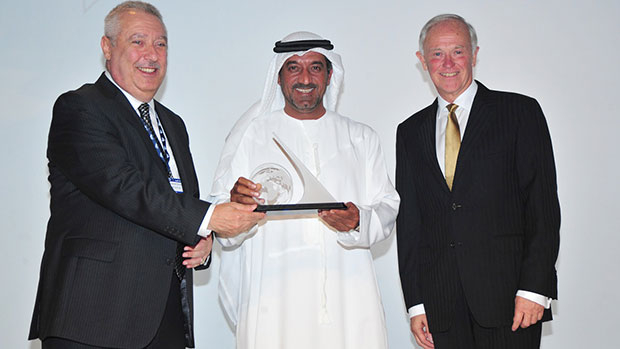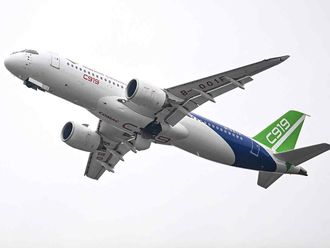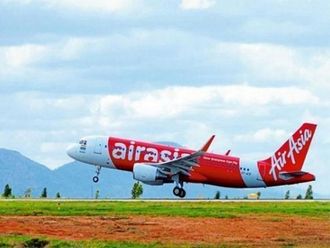
Dubai: Emirates, the largest airline by international passenger numbers, said on Wednesday its bottom line is being hit by weakened currencies in a number of markets it flies to.
“We are facing collapse of currencies in Russia, Australia, Europe, [and] the [British] Pound has gone way down,” Tim Clark, the airline’s President, told reporters in Dubai on Wednesday. He was speaking at the Arab Air Carriers Organisation’s Annual General Meeting.
The Russian rouble has lost more than 40 per cent of its value against the US dollar since the start of the year while the euro has slid about 10 per cent against the green back, Emirates is a dollar-denominated airline.
“These are primary income generating countries,” Clark said. “On one hand we win on the fuel but on the other hand we lose on the fuel,” he added.
Brent crude, the global benchmark, is down more 31 per cent since June trading at $79.08 a barrel as of local time Wednesday evening. Meanwhile, global jet fuel prices are down 20.2 per cent as of November 14 compared to a year ago.
Despite the easing in fuel prices, Clark said there has been little respite in the “crack spread”, which is the refining margin added to extracted oil.
Clark’s comments on the impact of foreign currencies follows last week’s announcement of the arline’s half-year results for the six months ending September 30, 2014. Emirates had an 8.2 per cent rise in net profits to Dh1.9 billion and an 8.4 per cent increase in passenger numbers to 23.3 million over the period.
“We will grow our business in the next four, five months,” Clark said when asked about expectations for the second half.
Emirates grounded 23 of its fleet for a 80-day period while Dubai International cut its operations to a single runway as it conducted refurbishment work on its two runways.
Clark said the airline’s passenger numbers will continue to grow by 8 to 10 per cent a year, which he labelled as a conservative forecast. The airline is targeting to carry 70 million passengers annually by 2020. Emirates carried 44.5 million in the 12 months ending March 31, 2014.
Further, Clark dismissed concerns that airline’s growth will be restricted until the end of the decade as its hub Dubai International edges closer to operating at full capacity.
“Flydubai will start moving down to DWC [Dubai World Central] and operate from there, which gives us the opportunity,” Clark said, freeing up space for other airlines to move into Terminal 2, which is predominantly used by flydubai.












